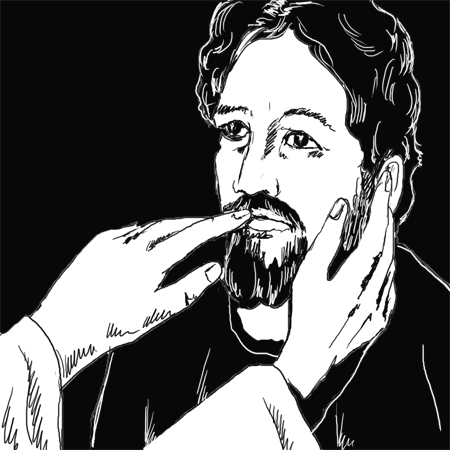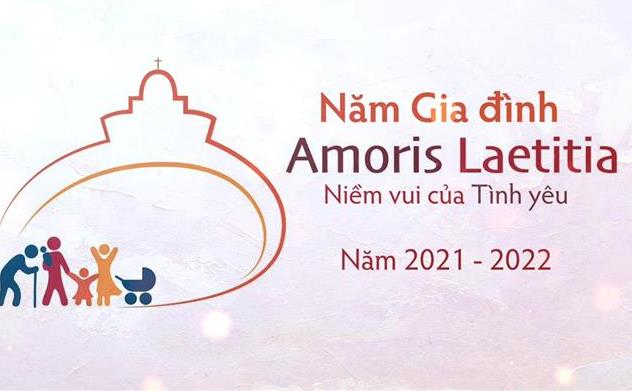23 Sunday of the Year B
Is 35:4-7; Jas 2:1-5; Mk 7:31-37
Often times we take things we have for granted and do not appreciate what we have until we have lost it. That is why a Vietnamese proverb says: Having disease of the eye often makes one feel sympathetic for the blind. We take for granted our ability to speak and hear.
 However, if we put ourselves in the person of a deaf man with a speech impediment in today’s Gospel, we would appreciate the gifts of speech and hearing a great deal.
However, if we put ourselves in the person of a deaf man with a speech impediment in today’s Gospel, we would appreciate the gifts of speech and hearing a great deal.
The deaf and mute man in today’s Gospel must have had felt such a desire to be healed that people implored Jesus to heal him. The Gospel records: Jesus put his finger into the man’s ears, and, spitting, touched his tongue; then he looked up to heaven, and emitted a groan. He said to him: ‘Ephphata’- that is ‘Be opened’ (Mk 7:33-34).
What Jesus did in today’s Gospel was to fulfill Isaiah’s prophecy that a messiah would come to clear the ears of the deaf (Is 35:5) and to lose the tongue of the mute (v. 6). The people of today’s Gospel witnessed these two acts: He has done all things well (Mk 7:37). The purpose of God’s creation of our tongue and ears is to communicate to others, i.e., to speak to others and to hear others speak.
Did we ever thank God for our tongue to speak and ears to hear? The best way to give thanks to God for our ears and tongue is to use them as God intended. Our tongue was created to communicate news, to communicate the truth and goodness, not lies and hatred. Our ears are to be used wisely, not to hear slander and false witness or encourage others to abuse their speech.
To hear others bear false accusations is to abuse God’s creation of the ears. At the confessional, we may confess that we spoke ill of others. However, did we ever confess that we had heard people speak ill of one another? The fact that the people asked Jesus to heal the deaf man with the speech impediment presupposed their faith and trust in Jesus. The healing took place in the pagan district of the Decapolis. This indicated that Jesus was also interested in gentiles and showed his compassion to them.
The healing of the deaf man with his speech impediment implied something else, not just for him to communicate with others. Our tongue and ears were created with a higher purpose, that is to communicate God’s word. That was what the deaf man with his speech impediment healed and his friends did. They said to one another: He has done all things well (Mk 7:37).
When we received the sacrament of baptism, the priest touched our ears and proclaimed the very word, which Jesus used in today’s gospel: Ephphata (that is ‘Be opened’ (Mk 7:34). This means our ears must be opened to the word of God so that we can listen to his word with faith. Faith opens our ears spiritually. We can hear God’s word in the bible. However, without faith, we can only hear it as a story, not as a biblical story.
God’s word revealed in scripture is a treasure for humankind. However, only those who open themselves to the word of God, only those who humble themselves before the almighty, are receptive to his word. Those who know how to listen are those who, not only hear with their ears, but also with their hearts. In summary, the purpose of God’s creation of our senses is to be used for the praise and glory of God.
So today let us pray asking the Lord for the gift of gratitude: gratitude to God for being able to hear others and to hear God’s word when somebody proclaims. At mass, we listen to the word of God in the scriptures and in the sermon, the homily if you prefer, in music and songs.
Having heard the word of God, we pray for the gift to respond by proclaiming God’s word, by offering our worship and prayers and by living our lives of faith. At a Sunday homily, a certain priest asked if any one of his congregation remembered anything of his sermon the week before. The congregation was silent for a moment. Finally, a tough looking man raised his hand to respond:
-
Yes, I do remember.
-
What did you remember? The priest asked.
-
I remember you said: This is the Word of the Lord.
Prayer for knowing how to listen and spread God’s word:
Oh Lord the almighty!
We thank you for giving us our tongue and ears
to communicate with people and with you.
We ask you to enlighten medical doctors and scientists
so that they may develop technique
to help the deaf and mute to communicate
effectively in their ways. Amen.
John Tran Binh Trong



 Every Week God Speaks – We Respond, Cycle A was published Online in the US. The introduction of the book is recorded at “Sách của Tác giả Chủ trương, Column 1.
Every Week God Speaks – We Respond, Cycle A was published Online in the US. The introduction of the book is recorded at “Sách của Tác giả Chủ trương, Column 1.

 Năm Mục Vụ Giới Trẻ 2021. HĐGM ấn định một chương trình Mục vụ Giới trẻ 3 năm với các chủ đề tương ứng: Năm 2020: Đồng hành với người trẻ hướng tới sự trưởng thành toàn diện.
Năm Mục Vụ Giới Trẻ 2021. HĐGM ấn định một chương trình Mục vụ Giới trẻ 3 năm với các chủ đề tương ứng: Năm 2020: Đồng hành với người trẻ hướng tới sự trưởng thành toàn diện. Năm Thánh Giu-se: Nhân kỷ niệm 150 năm Đức Giáo hoàng Pio IX chọn thánh Giuse làm Đấng Bảo Trợ Giáo Hội Công Giáo, Đức Phanxicô đã ban hành Tông thư “Patris corde” – Trái tim của người Cha – và công bố “Năm đặc biệt về thánh Giuse” từ
Năm Thánh Giu-se: Nhân kỷ niệm 150 năm Đức Giáo hoàng Pio IX chọn thánh Giuse làm Đấng Bảo Trợ Giáo Hội Công Giáo, Đức Phanxicô đã ban hành Tông thư “Patris corde” – Trái tim của người Cha – và công bố “Năm đặc biệt về thánh Giuse” từ  Năm “Gia đình Amoris Laetitia” 2021 về “Vẻ đẹp và niềm vui của tình yêu gia đình” do Bộ Giáo Dân, Gia Đình và Sự Sống tổ chức, được Đức Phanxicô khai mạc dịp Lễ Thánh Giuse
Năm “Gia đình Amoris Laetitia” 2021 về “Vẻ đẹp và niềm vui của tình yêu gia đình” do Bộ Giáo Dân, Gia Đình và Sự Sống tổ chức, được Đức Phanxicô khai mạc dịp Lễ Thánh Giuse 
